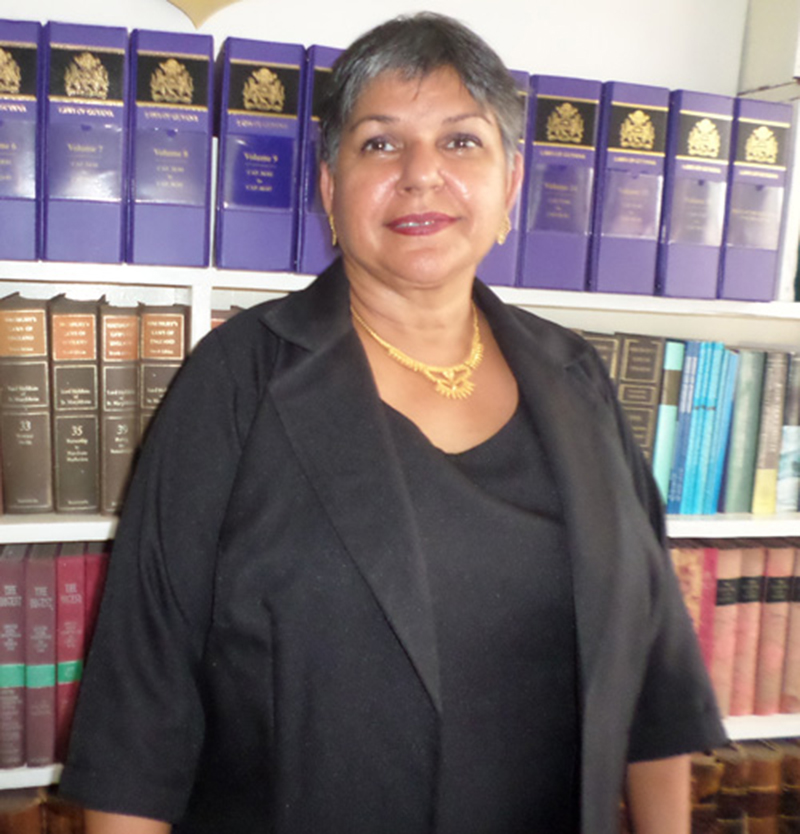Efforts to reduce the 48-hour waiting period before a woman can proceed after making a request for an abortion have been stalled by the failure to reconstitute the Medical Termination of Pregnancy Advisory Board for almost two years, according to attorney and human rights activist Sadie Amin.
Amin made the claim during a virtual panel discussion on “Sexual and Reproductive Health – Why is it Important to Gender Equality?” which was hosted last Wednesday by the Women and Gender Equality Commission.
Amin said while the Board, on which she sat as a representative of the Guyana Association of Women Lawyers (GAWL) until its life came to an end at the end of 2020, made progress on addressing the waiting period, which is stipulated in the regulations of the Medical Termination of Pregnancy Act.
The regulations provide for a waiting period of 48 hours after the woman has made a request for a medical termination of pregnancy.
The lawyer pointed out that by the time a woman visits a health institution to terminate a pregnancy, she likely would have thought it through and does not need to wait for 48 hours as is prescribed under the Act. This situation also makes it difficult for women who travel from far flung areas and who may not have access to accommodation in the intervening period. The records have shown, she said, that some of these women do not return when told they have to wait and it is feared that they utilise unsafe means to get their pregnancies terminated.
As a result, she said GAWL had worked with other organisations towards getting the Act amended to eliminate the waiting period.
“However, we were making good progress and then the life of the board expired and unfortunately the new minister didn’t think it fit to reconstitute a board,” she told the forum adding that since the end of 2020 there has been no Medical of Pregnancy Advisory Board.,” Amin told the forum.
This situation, she said, also puts the doctors in a very precarious position as some are meeting with women and they “are breaking the law by turning a blind eye…and going ahead and doing that (not waiting the 48 hours) in the interest of women.”
Amin said it is important for the law to be amended to either do away with the waiting period completely or reduce it to 12 hours.
Amin was also concerned with a provision of the Act that was taken to court that deals with who could administer the medical method that terminates pregnancies. A declaration was made by then Justice Roxane George that the Act was quite clear that the method has to be administered by a medical practitioner. “That’s a little problematic, especially for the riverain areas [and] that’s something that the women’s group could work on, could advocate on, because at the end of the day it does discriminate against women who are not in Georgetown and that’s a problem,” Amin said.
Another issue raised during the forum was that women from other Caribbean countries where abortions are not legal and even from Latin America are coming to Guyana to access the service, making it crucial that more facilities are capable of providing the service as it is needed.
Amin also mentioned that statistics have shown as well that girls under 15 — which is below the legal age of sexual consent – have had full term pregnancies. Amin said this development is concerning as the pregnancy should be reported but instead persons are turning a blind eye or parents are marrying the children as once there is consent by the parent the girl can marry. She believes that is one way in getting around the law and this situation demonstrates that the rights of the girl child are not taken seriously.










